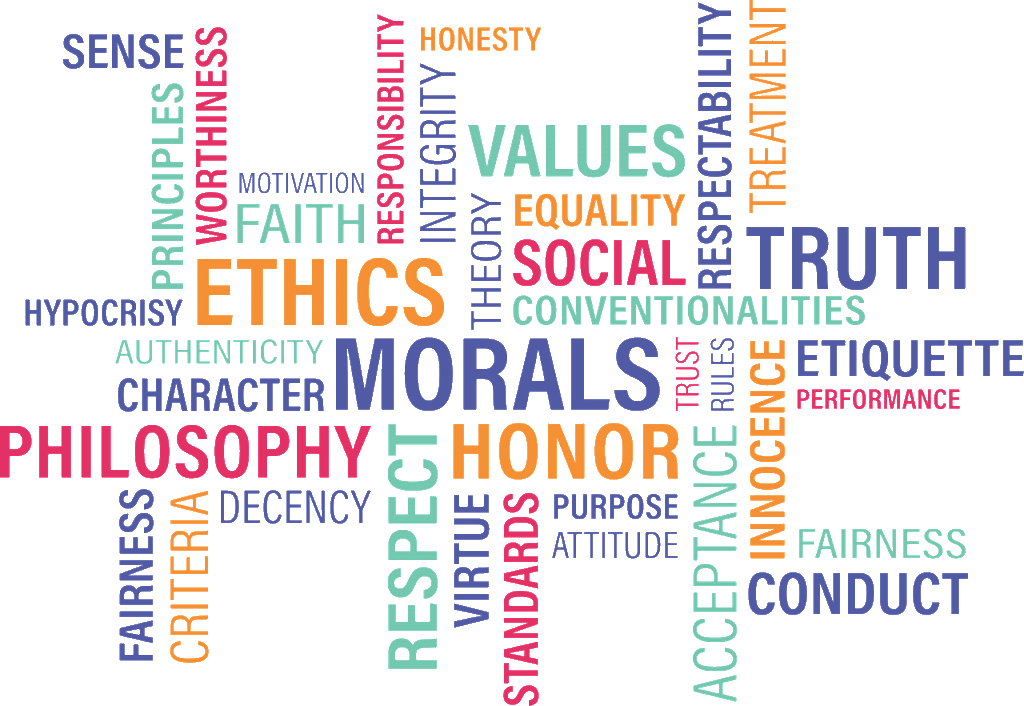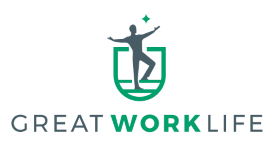Ethical decision-making can be tough because ethics raise philosophical, political, and religious questions.
Consequently, many business leaders avoid discussing or considering ethics out of fear of controversy. Moreover, many entrepreneurs fear raising ethical concerns will offend or drive away customers or employees.
Avoiding ethics is impossible because every business encounters ethical dilemmas all the time. Unfortunately, many business people make the wrong decisions because they refuse to think about ethics until they need to.
Understanding Ethical Decision Making
The best way to avoid making the wrong decision is to have a clear set of ethics that will guide ethical decision-making.
A clear set of ethics will not solve every problem, but it will make life far easier. For instance, employees will know what business practices to avoid and which customers to refuse.
The first step in ethical decision-making is to study basic ethical theories and grasp the thinking behind them. Understanding basic ethical concepts will enable you to decide when new problems or concerns arise.
Basic Ethical Systems
Several basic systems of ethical thought exist. Most people adhere to one of these systems without understanding it.
Every business leader needs to understand these systems and apply one or more to his or her organization.

1. Utilitarian Ethics: The Greater Good
Utilitarianism is the theory that ethics are based on outcomes. Essentially, Utilitarians believe any action is good if the outcome is beneficial.
For example, a company that makes a lot of money and donates it to charity is good. However, life and business are rarely that simple. A tobacco company that sells cigarettes to children but donates the proceeds to charity is both good and bad.
Consequently, most Utilitarians weigh the good a business or entrepreneur does against negative results. For example, a tobacco company is considered evil even if it pays its workers a high wage and makes large charitable donations.
Basic Utilitarian Concepts
Interestingly, utilitarianism does not have a firm definition of good or benefits. For instance, some Utilitarians assess behavior based on the amount of good done.
Others, following 19th-century British philosopher John Stuart Mill, assess the quality of the good performed. For instance, smaller donations to a charity with a high success rate are better than large donations to many charities.
A related concept is Mill’s General Happiness Principle, which defines good as promoting the most happiness for the most people. Many modern businesses, including the entertainment industry and retail, follow the General Happiness Principle. For instance, a popular movie with little artistic merit is good under the principle – that it brings happiness to most viewers.

"When You Stop Learning, You Stop Living" SkillShare Makes Learning Easy. Skillshare Is Our #1 Rated Learning Platform With Great Lessons On:★★★★★ Creating: Photography, Film-Making, Music, Graphic Design & Coding ★★★★★ Building: Leadership, Communication, Entrepreneurship & Marketing ★★★★★ Thriving: Personal & Professional Development, Productivity, Time Management "Skillshare is like Netflix for learning. I take a course every time I need a new skill. With over 30,000 courses to choose from, I always have something to learn." Barry D. Moore - Founder: GreatWorkLife.com |
2. Act Utilitarianism: Outcome Justifies Decision
Act Utilitarianism is the belief that each action must be judged based on its results and situation. Thus, It is a kind of Pragmatic Ethics. More on this concept below.
Under Act Utilitarianism, no action is good or bad. Instead, only the results are good or bad.
For instance, a business practice that creates many jobs is good, even if many people judge it as unethical. Thus, deceptive advertising or fraudulent sales practices can be excused if they benefit the company.
Act Utilitarianism is dangerous in business because it allows people to justify unethical and criminal behavior. Moreover, it is often difficult to ascertain the long-term effects of an action.
3. Rule Utilitarianism: Follow the Rules
Consequently, most people and businesses operate under the Rule of Utilitarianism. In Rule Utilitarianism, actions are judged by utility, but there are hard rules everyone must follow.
For example, many companies operate under the guideline to never violate the law. Thus, any business practice is permissible if it is legal.
To explain, under Rule Utilitarianism, a rule must benefit the organization. For instance, a rule against lying helps a sales organization avoid lawsuits or criminal charges for fraud. In addition, a rule against lying encourages customer trust and repeat business.
Other forms of Rule Utilitarianism include hard prohibitions against specific activities viewed as evil or destructive. For instance, strict rules against killing, violence, stealing, or lying in an organization.
Most company codes of conduct embody Rule Utilitarianism. However, many Rule Utilitarians regard impractical, unrealistic, or unenforceable rules as unbinding. For instance, many people do not view violating an unenforceable law, such as the prohibition of alcohol or marijuana, as wrong.
4. Duty-Based Ethics: Based On Rules of Good & Bad
Duty-based ethics stems from the belief that humans have a moral duty to do good and avoid evil.
All Duty-Based Ethics, or Deontological Ethics, are based on the presumption that all people can easily discern good from evil. Also, most Duty-Based Ethical Systems classify actions as absolutely good or evil.
A classic example of Deontological Ethics is the Ten Commandments, which lists specific actions as evil. For instance, “Thou shall not steal, thou shall not kill, thou shalt not lie.”
Consequently, Duty-Based Ethics treats an action as right or wrong and often ignores the outcome. Thus, killing is always wrong, even if it is killing an enemy soldier or a terrorist who could protect innocent lives.
Most people, however, accept there are limits to Deontological Ethics. A majority of Americans claim to be Christians and follow the Ten Commandments but accept the idea that their government has a moral right to kill the nation’s enemies.
Duty-Based Ethics in Business
Many businesses and businesspeople claim to follow Duty-Based Codes of Ethics. However, most businesses practice utilitarian ethics limited by a few deontological principles.
For instance, most retailers teach employees that their first duty is ” serving” the customer. However, customer service must not harm the business or employees. Thus, the employee’s duty to the company is considered higher than her duty to the customer.
Besides, most businesses have lists of behaviors forbidden to employees, even in the pursuit of customer service. For example, employees must obey the law and avoid actions like lying. Therefore, those companies follow the Rule of Utilitarianism.
A company follows a set of rules because the rules are considered “good for business.” For instance, a restaurant follows health codes to avoid legal problems and keep diners healthy.
[Related Article: How To Make Great Decisions 17 Step Checklist]
5. Pragmatic Ethics: A Practical Approach
Even though they do not admit it, most business leaders follow what is known as Pragmatic Ethics or Pragmatism. However, the same leaders often require their employees to practice Rule Utilitarianism, or Duty-Based Ethics, on the job.
Pragmatic Ethics is based on three basic assumptions the American philosopher John Dewey codified. Those assumptions are:
- There are no moral absolutes. All moral criteria can be revised as situations change or evolve. Thus, any rule can be abandoned if the situation changes.
- All morality and ethics are ultimately based on societal or cultural norms. People do not lie because their religion teaches lying is wrong, for example. A company donates money to charity because most people think charity is good. We fly the flag because most people think patriotism is good.
- Morality and ethics can change with situations. For instance, it is not wrong for a starving person to steal food to survive.
Few Pragmatists talk about their philosophy because most people find it offensive. However, many business and political leaders practice Pragmatism.
Many politicians believe lying to voters is permissible if it allows them to win office, for instance. However, the same politicians could believe it is wrong for an employee to lie to her boss.
In addition, many entrepreneurs believe it is okay to act unethically to achieve a goal. For example, a retailer might sell tobacco to finance the expansion of the vegetable department, yet the retailer would ban smoking in the workplace because it is messy and unhealthy.
6. Virtue Ethics: Acting Virtuously, Regardless of Result
Utilitarianism, Duty-based Ethics, and Pragmatism have one thing in common. All three theories of ethics stress the importance of actions and behaviors and their effects. Those theories appeal to business people because they are “results-oriented.”
Virtue Ethics, however, emphasizes the theoretical and philosophical aspects of morality. In particular, Virtue Ethics stresses character and the development of the human soul or mind.
Thus, a person must do good because doing good makes a person better. Therefore, a person needs to do good even without obvious material benefit or effect.
You should never lie because not lying makes you a better person. Also, truth is an absolute value everybody must adhere to.
Virtue Ethics in Business
Historically, Virtue Ethics practitioners, like Socrates, have been searching for moral wisdom or enlightenment. Interestingly, there are examples of Virtue Ethics in business.
Books like Tom Peters and Robert H. Waterman Jr.’s In Search of Excellence promote a kind of Virtue Ethics for business. To explain, Peters and Waterman emphasize the abstract ideal of “excellence” over quantifiable business success.
Peters and Waterman believe that the pursuit of “excellence” will improve a business. Practical aspects of business performance will improve because employees are striving for an abstract ideal.
Similar notions include pursuing “quality” through systems like Six Sigma. Quality, like excellence, is an abstract ideal, the pursuit of which can improve a business’s functioning.
Limitations to Virtue Ethics
The major criticism of Virtue Ethics is that its practitioners often ignore the results of their actions in pursuit of an abstract ideal.
Management lets product quality or basic business functions deteriorate while it pursues “excellence,” for example. Customer service falls apart because management is obsessed with “quality.”
This is why many practical businesspeople and employees are suspicious of Virtue Ethics and abstract business theories. They fear management’s focus on abstract goals will interfere with business processes.
Another reason leaders resist Virtue Ethics is that they fear conflicts or discussions over philosophical issues that will distract the organization from its core functions. For instance, arguments over advertising ethics could hamstring an organization’s marketing efforts.
However, Virtue Ethics strongly appeals to leaders and educated people. In particular, people who want their lives or activities to be about more than making money are attracted to virtue.
 Audiobooks Are Food for the Mind Inspiration, Education & Relaxation Have you discovered the joy of listening?★★★★★ Audible: Review Winner - Best for Price, Library Size & Original Content. ★★★★★ Blinkist: Review Winner - Best Audiobook Summary Service. ★★★★ Audiobooks.com: Best For Unlimited Audiobook Listening. "As a 10-year member of Audible, I have a library of 300+ audiobooks. The best thing is, with a few clicks, I can return any book within 12-months. I also subscribe to Blinkist; with 5,000 15-minute audio-summaries, I can consume knowledge and learn new concepts fast." Barry D. Moore - Founder: GreatWorkLife.com |
7. Which Ethics System Is Right for You?
There is nothing simple about ethics and no such thing as a simple ethical decision. This complexity is why many leaders make the mistake of avoiding ethics until it is too late.
However, discussing ethics now is always better than ignoring them, even if they become messy, complicated, and divisive. Thus, you should decide what ethical system your organization will follow and implement.
Generally, utilitarianism is best for manufacturers, technology companies, and other organizations that deal with a physical product. Rule Utilitarianism, in particular, is usually the easiest ethical system for uneducated people to understand and practice. Moreover, it can avoid religious or political controversy.
On the other hand, sales, engineering, design, entertainment, and software companies can benefit from Virtue Ethics. Pursuing excellence, or quality, can promote best practices and better employee behavior. In addition, abstract ideals often appeal to creative and scientific people.
Benefits from Duty-Based Ethics
Meanwhile, Duty-Based Ethics strongly appeal to those in service professions, healthcare, education, and government.
Law-enforcement officers have a duty to protect the public and enforce the law, for instance. Also, teachers have a duty to their students, doctors, and nurses a duty to their patients.
Emphasizing duty can improve performance in a hospital or school. Strict adherence to Deontological Ethics can improve performance in environments that require strict discipline or adherence to procedure. For instance, the operating room or the military.
Companies that sell products or services to the military, government, or law enforcement often profit from appeals to duty. For instance, arms makers will claim they have a duty to help the military protect the nation from its enemies.
Plus, Duty-Based ethics can improve performance in challenging or dangerous situations. Emphasizing duty can keep people alive and increase safety in dangerous environments like mines or factories.
Using Pragmatic Ethics
Pragmatic Ethics can be effective in situations where people with different values or standards come into contact or conflict. Besides, Pragmatic Ethics are often necessary to achieve a greater goal or good.
Business situations that might necessitate pragmatic ethics include finance, advertising, and marketing. Additionally, relationships with the government, regulators, competing interests, and the legal system often require Pragmatic, Ethical decision-making.
For example, an executive could have to obey a law he finds immoral in order to do business in a certain region. A manager could also sign a union contract with provisions she finds wrong to keep a factory operating and the company in business.
However, Pragmatic Ethics are always dangerous because they are complex and uncertain. For example, does the good of keeping the business in operation outweigh the wrong of signing a contract a manager thinks is immoral?
Under such circumstances, most people turn to religion or philosophy for guidance, which can lead to conflict. For example, an atheist manager could make a decision that offends a Muslim workforce to keep the company operating.
Summary: Understanding the Ethics of Others
It is critical to know the ethics, philosophies, and faiths of the Christian world, even if you disagree with them. Knowing how or why somebody is making a decision can lead to understanding and compromise.
Understanding others’ beliefs can help you avoid making offensive or destructive decisions. Successful executives consider the ethics of coworkers and customers in their own decision-making.
Understanding and clarifying your ethics to coworkers will make life easier. Knowing how ethics impacts business operations will lead to intelligent and effective decision-making.
A good knowledge of ethics and its implications is the basis of all effective decision-making. If you do not understand ethics, you will never be an effective leader or decision-maker.

Awesome article really enjoyed it